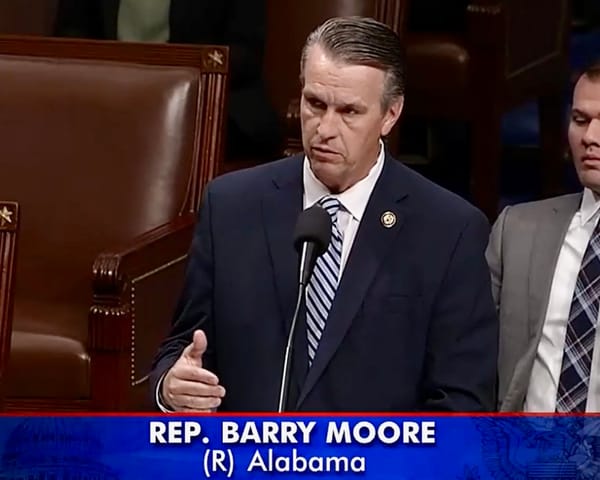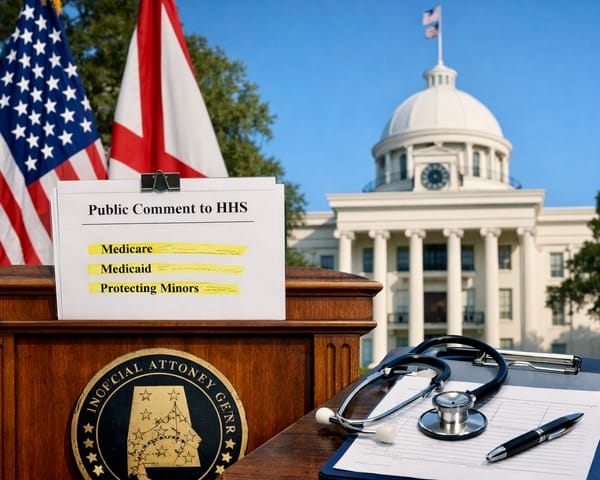Massie Targets Pharma Shield with Bill to Repeal PREP Act
“Medical malpractice martial law must end.”—Rep. Thomas Massie

U.S. Representative Thomas Massie (R-KY) has introduced H.R. 4388, known as the PREP Repeal Act, a bill that will fully dismantle the Public Readiness and Emergency Preparedness (PREP) Act. Originally passed in 2005, the PREP Act grants sweeping legal immunity to pharmaceutical companies and other entities involved in the manufacture, testing, distribution, or administration of medical products during a declared public health emergency. In announcing his bill, Massie called the existing law “medical malpractice martial law” and said it “prevents people from holding corporations accountable for the pain and suffering they cause during Presidentially declared emergencies.”
Under current law, the Secretary of Health and Human Services (HHS) can issue a public health emergency declaration, activating PREP Act protections. These protections cover a wide range of actors, including vaccine manufacturers, distributors, and administrators, and shield them from lawsuits related to “covered countermeasures” unless there is evidence of willful misconduct that resulted in serious injury or death. Injured individuals are instead routed to a federal claims system known as the Countermeasures Injury Compensation Program (CICP), a no-fault fund created as an alternative to traditional legal action.
H.R. 4388 seeks to repeal all legal immunity provisions provided under the PREP Act and shut down the related CICP program. The bill would also revoke any unused federal funds tied to the PREP framework. Massie stated, “Americans deserve the right to seek justice when injured by government-mandated products,” arguing that the law has enabled pharmaceutical firms to avoid accountability while denying injured citizens their day in court.
The PREP Act was passed in December 2005 during the George W. Bush administration, folded into a broader defense appropriations bill (NDAA) with little public debate or legislative scrutiny. Its stated purpose was to encourage swift pharmaceutical response in emergencies such as bioterror attacks or pandemics by protecting companies from liability risks. However, the law immediately drew criticism. Senator Edward Kennedy called it a “give-away to the drug industry,” and advocacy groups such as Public Citizen and the Eagle Forum warned it gave too much power to the executive branch while stripping Americans of legal remedies.
During the COVID-19 pandemic, the PREP Act was widely invoked to protect vaccine makers and healthcare providers. But in the years since, courts across the country have started narrowing its interpretation. For example, in Estate of Maglioli and similar nursing home-related cases, federal courts found that PREP does not cover basic negligence or failures to act. In multiple rulings, judges concluded that injuries stemming from the absence of protective measures—or from general care failures—were not shielded under PREP. In one North Carolina case, the court found that PREP did not protect healthcare providers accused of civil battery for forced injections.
The Department of Health and Human Services has issued multiple advisory opinions encouraging broad interpretation of PREP protections—even arguing they apply to planning decisions and failure to use a countermeasure. But judges have increasingly rejected those advisory opinions as lacking legal force, holding that PREP was never intended to serve as a blanket defense in all medical liability cases.
Critics of the PREP Act have long argued that the law tips the scales too far in favor of pharmaceutical firms. Their concerns include the act’s preemption of state-level safety laws, its override of traditional legal remedies, and the vague scope of the term “covered countermeasures.” In effect, they argue, it enables government and industry to bypass accountability during emergencies. Consumer groups also point to the limited success of the CICP, which has denied the vast majority of claims filed since its inception. The program operates with little transparency and lacks the due process protections of a traditional court system.
Massie’s bill is co-sponsored by Rep. Paul Gosar (R-AZ), a longtime critic of federal overreach in health policy. However, Democrats and some public health officials continue to defend the PREP Act, arguing that it was crucial in speeding up the development and deployment of COVID-19 vaccines and treatments. They warn that without legal immunity, companies may be unwilling to act quickly in future public health crises.
Even so, Massie says the public mood has shifted. “The 2005 PREP Act gave the Secretary of Health and Human Services the power to invoke legal immunity for corporations,” he said. “Since 2020, HHS has used this law to block lawsuits relating to masks, tests, treatments, and vaccines.” With growing bipartisan concern over executive power and accountability in health policy, H.R. 4388 is likely to ignite serious debate in Congress over the balance between emergency response and individual rights.
H.R. 4388 marks a growing push to reassess post-9/11 and pandemic-era policies once thought untouchable. For critics of PREP, H.R. 4388 is not just about liability—it’s about restoring the right to be heard, and to seek justice when harm is done.




